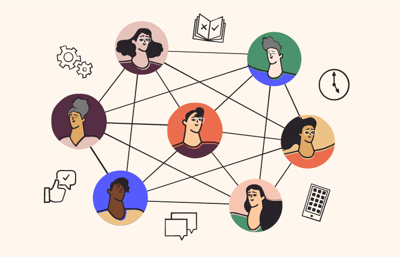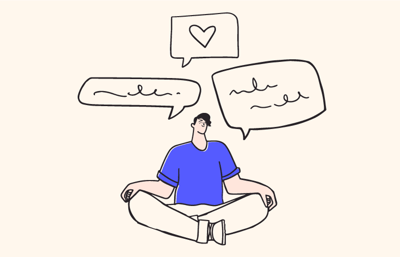Intro to Resilience - Consciously Lessons (Resilience)

Transcript taken from the video above
Resilience has never been so important. At home, at work, economically, and societally, we're facing an unprecedented time. Change and uncertainty is in abundance and without resilience, we'll find it hard to navigate.
Resilience gives us the strength and perspective to better deal with the inevitabilities of life. And it's just as important to know what resilience isn't as to know what it is.
Resilience isn't an expectation that you'll stay strong regardless of the pressures, the crises, the workload, and the tragedies that you experience. Let's be honest; unless you've reached a stage of enlightenment reserved for the likes of Gandhi or the Dalai Lama, you are likely to be affected by the difficulties experienced in life.
It's also not stamina. It's not the ability to keep on going regardless of the pressures and challenges you face. It doesn't mean working constantly to deliver in the face of adversity. It doesn't mean staying switched on around the clock without burning out.
Resilience is about your ability to bounce back. Resilience provides you with the ability to recover more quickly from setbacks, to stay steady, or get back to a steady state where things feel anything but steady.
Imagine you're an employee for a moment and you're being taken through a redundancy consultation process. Your job is put at risk and the process takes four weeks. During those four weeks, you have no idea if you'll have a job at the end of the process. You know the job market's tough and that financially, your family will be in trouble if there aren't two incomes. That's going to cause anxiety. The point isn't whether anxiety is experienced but how intense it is, how much it affects functioning, and how long it takes you to recover from it.
Expecting anyone to be totally unaffected by the dramas of life will set unrealistic expectations. But with resilience, you can cope better. If you spend that four weeks agonising about what might go wrong, rehearsing worst-case scenarios and becoming fearful about what may happen, it's going to be a pretty painful four weeks, not just for you but for the people around you.
Without resilience, the process of a redundancy consultation could become debilitating, leading you to experience unhealthy stress levels and catastrophise the outcome. This can also affect the recovery process, productivity, your mental wellbeing, and of course your relationships both inside and outside of work.
The crucial differentiators to someone who has built resilience in contrast to someone who needs to develop in that area are mindset and self-management. This is largely about the extent to which you focus on the problem or the emotions. Focusing on the problem, finding and addressing what's bringing about the negative situation is a more productive approach. When you focus on the emotions and simply try to manage them and your emotional reactions, you can often be less productive, making things more challenging for you.
Part of emotional resilience is the ability to set emotional boundaries and carefully self-manage in order to positively adapt to the situation you're facing. That's partly about bouncing back and partly about understanding your emotions, and using techniques to take a more positive approach. This is less about managing your stress and more about learning to adapt in situations which could otherwise cause a loss of stress.
Some people are more naturally resilient and the older generation is often better skilled at self-management than younger folk. Often they've been through the experiences which help them to gain perspective or they've developed the techniques to better manage their emotions and responses.
Whilst age can give you the wisdom to view the trials and tribulations of life in a more productive and positive way, you don't have to wait until you've experienced a lot of hardship to develop resilience.
Resilience fluctuates based on life circumstances. Being resilient enough to deal with one challenge can be straightforward but it's more difficult when you're facing numerous pressures. Not to mention the fact that we're all different. So, what one person might struggle with, someone else might find unproblematic.
Life will throw us lemons, we know that for sure. It's our ability to get used to eating them that'll lead to greater resilience and therefore greater wellbeing and performance because the tricky things in life are less likely to throw you off track.
Through building your levels of consciousness, you arm yourself with the skills and awareness to develop your resilience but also know what to do in those moments when you maybe aren't feeling quite so resilient. You can also learn how to support others when they're facing tough times.
If you look at resilience as a competency or area of proficiency, we can see that it's something that we can develop. This means we have control over the way that we feel and the way in which we experience the world around us. We just have to equip ourselves with the self-knowledge and techniques to navigate it.
This is where becoming more conscious has a direct impact on our wellbeing because when we become more conscious, we also find productive and positive ways to adapt to the challenges we face in our lives.
 Natasha Wallace
Natasha Wallace


